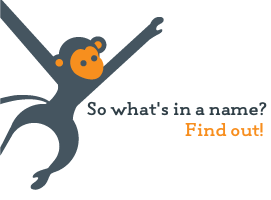A few weeks ago, my oldest niece (4 1/2 years old) skipped soccer practice. She had her first loose tooth and was afraid “something would happen.” She was simultaneously fascinated with wiggling the tooth, captivated with it to the point of distraction, and paralyzed with the fear of losing it. Would it hurt? Would it bleed? How would her mouth look with an empty hole? Tales of the tooth fairy sneaking into her room at night to take the tooth & leave money were further unsettling (and I can hardly blame her on that one.) All the ‘rational adults’ were trying to coax her through it: “We’ve all done it, and it didn’t hurt at all!” “It’s a part of growing up!” (And she wasn’t at all sure she wanted to grow up.) She stopped eating. She used it as a crutch to avoid other experiences.
In any moment when facing change or uncertainty, we’re all just some version of that little kid again – we can become fixated on a challenge in front of us. The challenge can propel or paralyze us. Taking on a new client, losing a job, learning a new skill, developing a new program, starting a fundraising campaign, joining a new network, giving a presentation … uncertainty is the breeding ground of fear, fear is the breeding ground of paralysis, and paralysis equates to not growing.
Growth is hard, but change is the only constant. You already know this, but in case fear is clouding your memory, here are a few ways to make it easier:
Get educated
Whatever it is that’s giving you the butterflies – learn everything you can about it. It’s not just a catchy tagline, knowledge really is power: information is the quickset in the foundation of concrete confidence. You can’t control whether or not you’re the smartest person in a situation, but you CAN choose to be the best informed. Push yourself purposely to look beyond your normal reliable sources for insights, follow a few Google searches down rabbit holes and see what you find.
Invest in a network
Build yourself a diverse & trusted network long before the metaphorical tooth starts wiggling. Find people in real life that you admire, that you can rely on for advice, and pointedly ask them for it. You’ll be surprised how generous people are with their insight, and how much they want you to succeed. Steer clear of the bullies who will taunt you with tales of doorknobs & string.
Imagine the worst
Play the “and then what happens if” game with yourself: once you can articulate exactly what the worst outcome would be in any situation, it’s not quite so scary. You’re better prepared to deal with whatever result comes your way – and it’s rarely as bad as you imagined it to be. If the worst comes to pass, see #2, above: You’ve got a support system.
Practice uncertainty
Confidence is a muscle you need to exercise. Purposely put yourself just a little bit outside your comfort zone regularly to make yourself more comfortable navigating changes. Identify for yourself an hour a week minimum where you focus on a smaller discomfort goal (as simple as learning a new app or going to a different place for coffee). Put it on your calendar as your professional development.
ACT. And remember what you feed will grow.
Keep wiggling that tooth: control your own destiny. There’s nothing quite like the endorphins released when you successfully conquer even the smallest of your uncertainties. The second hurdle isn’t quite as scary as the first one. Above all, remember that fear breeds where energy is stagnant: keeping up your momentum will feed your confidence.
You just might surprise yourself.
Take a minute and think: what’s the “loose tooth” in your world that you’re avoiding today?



